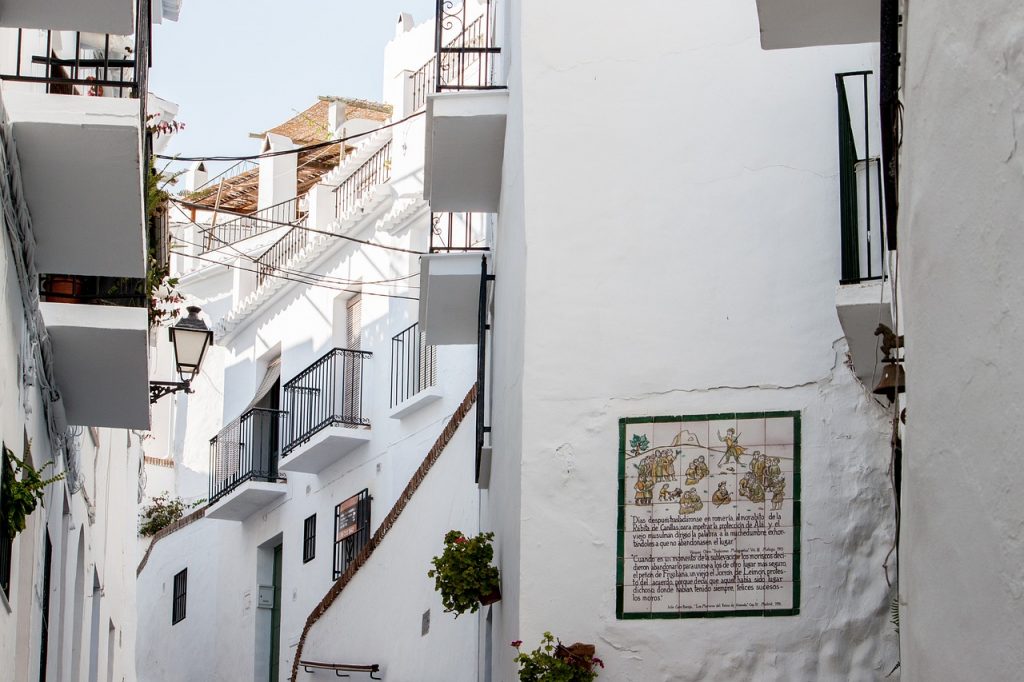How to buy a property in Spain
Purchasing property in Spain is an exciting venture, but it’s essential to approach it with due diligence. The Spanish property market, with its unique regional characteristics and legal intricacies, requires thorough understanding and careful navigation. In this article, we will guide you through the crucial documents and legal checks necessary before making a property purchase in Spain. Whether you are a local buyer or an international investor, being well-informed about the process can save you from potential legal and financial pitfalls. Let’s delve into the key aspects that ensure a smooth and secure property transaction in Spain.
Getting started in Spain
Understanding the Spanish property market
The Spanish property market is diverse and varies significantly from region to region. Understanding these regional market trends is crucial in making an informed decision. For instance, the property dynamics in urban areas like Madrid and Barcelona can be vastly different from those in coastal regions or rural areas. Additionally, the market is influenced by factors such as tourism trends, economic conditions, and property laws that might differ within autonomous communities.
The role of legal advisors in Spain
Navigating the Spanish property market can be complex, especially for those unfamiliar with the local legal system. This is where the role of a legal advisor becomes indispensable. A knowledgeable Spanish lawyer can provide invaluable assistance in understanding property laws, ensuring compliance with legal requirements, and safeguarding your investment. They can guide you through the process, from reviewing the title deed to ensuring all legal checks are in place. For international buyers, a lawyer can also assist with language barriers and specific regulations pertaining to foreign property ownership in Spain.

Key documents to review
When purchasing property in Spain, several critical documents require careful examination. These documents are integral to ensuring the legality of the transaction and the security of your investment.
Title deed (Escritura)
The ‘Escritura Pública’ is a public document that formalizes the property’s sale and is essential in the Spanish property buying process. It provides detailed information about the property, including its description, boundaries, and any rights or obligations attached to it.
- Verify Ownership: The title deed confirms the seller’s legal right to sell the property.
- Check for Encumbrances: It’s crucial to check whether the property is free of debts, liens, or other legal encumbrances.
Land registry certificate (Nota Simple)
The ‘Nota Simple’ is an extract from the Land Registry providing information on the legal status of the property. This document is vital for confirming that the property details in the title deed are correct and up-to-date.
- Legal status: It includes details about the property’s ownership, boundaries, and any charges or encumbrances against the property.
- Historical ownership: The certificate gives a history of previous owners, which can be crucial in understanding the property’s legal background.
Legal checks and certifications
In addition to reviewing the title deed and land registry certificate, several other legal checks and certifications are essential when purchasing a property in Spain. These documents ensure the property meets all legal standards and requirements.
Building licenses and permits
For properties that are newly constructed or have undergone recent renovations, it is crucial to verify that all construction work complies with local regulations.
- Construction compliance: Check that the property has all the necessary building licenses and permits, and that these are in line with the local urbanistic laws.
- Completion certificate: Ensure that a certificate of completion (‘certificado de fin de obra’) has been issued for any recent construction or renovation work.
Certificate of habitability
The ‘Cédula de Habitabilidad’ confirms that the property meets the government’s living standards and is legally habitable.
- Health and safety standards: This certificate verifies that the property complies with health, safety, and habitability regulations.
- Utility connections: It is often required for contracting utilities such as electricity, water, and gas.
Community of owners’ documentation
If the property is part of a development or complex with shared areas, it’s important to understand the community of owners’ rules and financial health.
- Community bylaws: Review the community bylaws (‘estatutos de la comunidad’) to understand your obligations and rights as a part of the community.
- Outstanding fees: Check for any outstanding community fees or debts associated with the property.
Financial and tax considerations
Purchasing a property in Spain involves several financial and tax considerations that are crucial for a seamless transaction. Understanding these aspects is key to ensuring you are fully informed about the financial commitments and obligations involved.
Property tax documents (IBI)
Reviewing the property tax documents is an essential step in understanding the fiscal responsibilities associated with the property.
- Local Property Taxes: Ensure that the ‘Impuesto sobre Bienes Inmuebles’ (IBI) receipts are up to date. This local property tax is annually levied and must be paid by the property owner.
- Outstanding Tax Liabilities: Check for any unpaid property taxes, as these can sometimes fall on the new owner post-purchase.
Non-resident tax implications
For non-resident buyers, there are specific tax implications to consider when purchasing property in Spain.
- Income tax on property rentals: If you plan to rent out the property, be aware of the income tax implications for non-residents.
- Wealth tax considerations: Depending on your circumstances, you may also be subject to wealth tax on your Spanish property.
- Capital gains tax: Be informed about capital gains tax responsibilities should you decide to sell the property in the future.
Understanding these financial and tax aspects is critical in planning your investment and avoiding any unexpected expenses. It’s advisable to consult with a tax advisor who is experienced in Spanish property law to get detailed and personalized advice, especially if you are a non-resident buyer. Being fully aware of your financial obligations will help you make a more informed decision and ensure a financially sound investment in the Spanish property market.

Additional important documents
When purchasing property in Spain, it’s crucial to review some additional documents that provide further insights into the property’s overall status and potential future obligations.
Energy efficiency certificate
The Energy Efficiency Certificate is a critical document in the Spanish property market, offering insights into the energy performance of the property.
- Energy ratings: Look for the energy rating, which ranges from A (most efficient) to G (least efficient), to understand the property’s energy efficiency.
- Validity: Check that the certificate is current, as it’s a legal requirement for selling or renting out property in Spain.
Proof of payment for previous utilities
Ensuring there are no outstanding utility debts is essential in the property purchasing process.
- Utility bills: Request recent bills to verify that all utility payments are up to date.
- Change of contract: You will need to transfer utility contracts to your name post-purchase, which requires confirmation of payment from the previous owner.
Reviewing these documents is crucial for a thorough understanding of the property’s maintenance, energy efficiency, and potential future costs. The Energy Efficiency Certificate not only informs about the environmental impact but also aids in financial planning for energy consumption. Additionally, confirming the settlement of all utility bills helps prevent future disputes and financial surprises.
The buying process and closing documents
Navigating the final stages of buying a property in Spain involves understanding the closing process and the key documents involved. This phase solidifies the transaction and transfers ownership, making it one of the most critical parts of the property buying journey.
The role of the notary
In Spain, the notary plays a vital role in the property buying process, ensuring that all legal requirements are met and the transaction is properly recorded.
- Document review: The notary reviews all the documents to ensure they are accurate and complete.
- Official witness: The notary acts as an official witness to the signing of the final deed of sale (‘Escritura de Compraventa’).
Final deed of sale (Escritura de Compraventa)
The Escritura de Compraventa is the official document that finalizes the property purchase in Spain.
- Details of the transaction: This document includes comprehensive details about the property, the terms of the sale, and the identities of the buyer and seller.
- Signing ceremony: The signing of this document typically takes place at the notary’s office, with all parties present.
Understanding the role of the notary and the significance of the Escritura de Compraventa is essential for a smooth and legally sound property transaction.

FAQs for property buying in Spain
Navigating the property buying process in Spain can raise many questions, especially for those unfamiliar with the local real estate market and legal procedures. This section addresses some of the most common queries to help clarify the process.
How long does the property buying process typically take in Spain?
The timeline can vary, but typically, it takes several months from viewing properties to completing the purchase. The actual time frame can be influenced by various factors, including the efficiency of document gathering and the presence of any legal issues.
Is it mandatory to have a lawyer for buying property in Spain?
While not legally mandatory, it’s highly advisable. A lawyer can provide essential guidance, ensure legal compliance, and protect your interests throughout the process.
Are there any restrictions for foreigners buying property in Spain?
Generally, there are no restrictions on foreigners buying property in Spain. However, non-EU citizens may need to fulfill certain conditions and should be aware of their residency status.
What additional costs should I anticipate when buying property in Spain?
Apart from the property’s price, buyers should budget for taxes (like VAT or transfer tax), notary fees, property registration fees, and legal fees. These can add approximately 10-15% to the property’s cost.
Can I get a mortgage in Spain as a non-resident?
Yes, non-residents can get mortgages in Spain, but the conditions might differ from those for residents. It’s advisable to consult with a financial advisor or a bank in Spain for specific details.
Conclusion
Buying property in Spain is a significant decision that requires careful consideration and understanding of the local real estate market and legal system. From reviewing essential documents to understanding the role of legal advisors and the notary, each step is crucial in ensuring a successful transaction. Remember, thorough preparation and expert advice are key to navigating the process smoothly. Whether you’re a local buyer or an international investor, being well-informed will help you make confident and informed decisions in your Spanish property journey.

